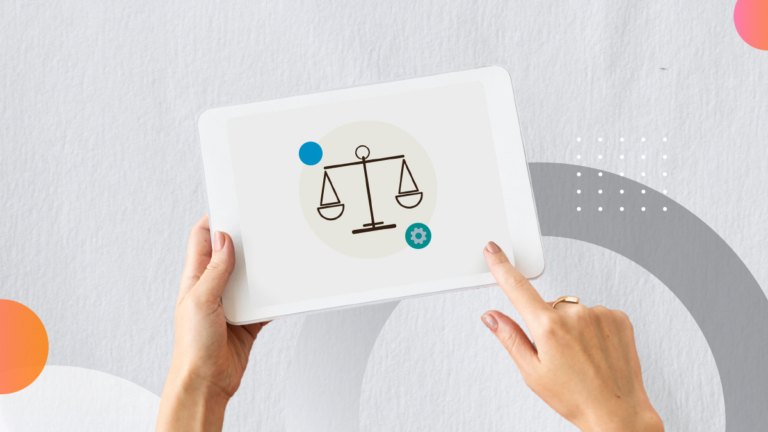AI Translation Ethics, a Matter in the Spotlight
AI translation ethics is a topic under discussion in the multi-language industry. Artificial intelligence is revolutionising industries across the board, and translation is no exception. With its capacity to enhance efficiency, reduce costs, and process vast amounts of text, AI is a true game-changer. However, this technological advancement is not without significant ethical considerations.
In this post, we will explore the ethical landscape of AI translation. We will discuss the responsibilities that various stakeholders must assume and highlight common pitfalls to avoid. Prepare for a thorough and insightful examination of this topic that does not leave anyone careless.
Great Power, Great AI Translation Ethics
In the bustling world of translation, AI-driven tools like machine translation engines and neural networks are reshaping the landscape. These marvels of technology can translate vast amounts of text with remarkable speed and efficiency, making them indispensable in our interconnected global community.
Yet, with great power comes great responsibility. How do we guarantee the accuracy and integrity of these translations? How can we safeguard the confidentiality of sensitive information? And, in an industry increasingly dominated by AI, how do we ensure fair pricing practices?
These ethical considerations are crucial as we embrace the transformative potential of AI in translation without risking confidentiality and quality.
Key Players in the Translation Process: Roles and Ethical Duties
When it comes to AI translation ethics, understanding the landscape means examining the diverse roles of authors, clients, translators, and end users. Each group has unique responsibilities and ethical considerations.
Let’s see their performance in the language world!
1. Authors: The Voice in a Digital Era
Authors are central to the process as they create the original content to be translated. Their primary ethical duty is to ensure the integrity and intent of their work is preserved. AI translation carries the risk of losing nuances, tone, and style, potentially altering the author’s original message.
With the arrival of AI translation tools, authors face new challenges. While powerful, these tools pose risks such as the potential loss of nuances, tones, and stylistic elements inherent in the original text. These risks can inadvertently alter the author’s intended message, leading to misinterpretations or distortions.
Moreover, ethical considerations for authors encompass the obligation to produce original content. This entails avoiding plagiarism, respecting intellectual property rights, and maintaining transparency in sourcing information. By upholding these ethical standards, authors not only preserve the integrity of their work but also contribute to fostering trust and credibility in the broader translation and publishing industries.
2. Clients: Data Duty
Clients, often businesses or organisations, use translation services to reach broader audiences. Ethically, they must ensure translations are accurate and culturally sensitive. They are also responsible for handling data provided to AI systems, which often contains sensitive information.
Beyond linguistic and cultural considerations, clients also play a crucial role in safeguarding sensitive data entrusted to AI systems during the translation process. Many AI translation tools rely on vast amounts of data, some of which may include proprietary or personal information. Clients must therefore ensure that the companies and AI systems they engage with adhere to rigorous data protection regulations and ethical standards. Failure to do so can compromise confidentiality and trust, potentially exposing sensitive information to unauthorised access or misuse.
Moreover, clients must be mindful of the ethical implications of their business partnerships. By engaging with translation service providers that operate ethically and transparently within the industry, clients uphold their own ethical standards. Conversely, supporting companies that do not prioritise ethical practices indirectly disregards and supports unethical behaviour within the industry.
#OptimationalTip: When looking for an LSP, pay attention to transparent communication and adherence to industry standards. Team recognition and happiness is also a great indicator of strong ethics!
3. Translators: The Ethical Backbone
Translation professionals bear a critical responsibility in delivering accurate and culturally sensitive translations. Beyond linguistic proficiency, they must detect the nuances and complexities that AI translation tools may overlook. This oversight involves ensuring that translations maintain the original intent and context of the source material, preserving subtleties in tone, style, and cultural references that AI might miss.
One of the primary ethical considerations for translators involves the fair pricing of their services. Fair pricing ensures that translators are compensated adequately for their expertise and effort, reflecting the complexity and importance of their role in bridging linguistic and cultural gaps. By advocating for fair compensation, translators not only sustain their livelihood but also uphold industry standards that promote professionalism and respect for their skills.
Confidentiality is paramount for human translators, who often handle sensitive information such as legal documents, medical records, and corporate strategies. Upholding strict confidentiality agreements is essential to protect the privacy and integrity of the information entrusted to them. They must exercise utmost discretion in handling and safeguarding sensitive data, ensuring it remains secure and confidential throughout the translation process.
4. End-Users: Shaping the Future
So, who holds the truth? Who decides if a text is controversial or well-received?
End-users are the arbiters of truth when it comes to determining whether a text is well-understood, well-received, or controversial. They contribute significantly to refining and enhancing the overall quality and precision of translations. And where to find that feedback? Well, it depends, but social networks such as X, LinkedIn, reviews, comments, or surveys are all good options.
This collaborative approach not only helps translators and clients better understand the specific needs and expectations of end-users but also leads to continual improvements in future translations.
End-users’ feedback serves as a valuable mechanism for continuously improving the translation process. It allows for adjustments to linguistic nuances, cultural references, and technical accuracy, ensuring that the final translated content meets the highest standards of clarity and relevance. Through their active participation in the feedback process, end-users play a pivotal role in shaping the effectiveness and reliability of translation services across various domains and languages.
#OptimationalTip: No feedback usually means good feedback. Make just a single mistake in a word, and readers will definitely catch it!
AI Translation Ethics: Security, Bias, and Other Challenges
AI translation ethics introduce significant considerations that require careful navigation. One critical concern is the accuracy of translations. While AI excels at processing vast amounts of data quickly, nuances in language, cultural context, and idiomatic expressions can pose challenges. These nuances are crucial for preserving the integrity and intended meaning of the original text, making accuracy a pivotal ethical issue to address in AI translation.
Another pressing ethical issue is the potential for bias in AI-generated translations. AI systems learn from extensive datasets that may inadvertently contain biases present in the data. This can lead to discriminatory outcomes, particularly in sensitive areas such as legal or medical translations, where impartiality is essential. Addressing bias involves rigorous monitoring, training AI on diverse datasets, and implementing algorithms capable of detecting and mitigating bias in real-time. By tackling these ethical challenges head-on, stakeholders can enhance the reliability and credibility of AI translations while upholding ethical standards in the translation industry.
Common Ethical Pitfalls
- Misrepresentation: AI translation runs the risk of altering the original meaning and context of texts, potentially leading to misinformation or misinterpretation.
- Confidentiality Breaches: Handling and protecting sensitive information is crucial in AI translation, where breaches can lead to legal ramifications and loss of trust.
- Unfair Pricing Practices: Ethical considerations in pricing AI translation services ensure fairness and transparency in cost structures, avoiding exploitation of clients and competitors.
Promoting Ethical Practices Among Stakeholders
- Education and Training: Providing ethical training for translators and AI developers helps cultivate awareness and responsibility in handling translation tasks with AI.
- Transparency in Processes: Maintaining open and transparent communication with all stakeholders about AI’s role in translation ensures accountability and builds trust.
- Collaboration and Oversight: Encouraging collaboration between human translators and AI systems fosters a balanced approach that leverages AI’s strengths while mitigating its ethical risks through human oversight and intervention.
Paving the Way for Ethical AI Translations
Artificial intelligence’s ability to streamline translation processes and improve efficiency is undeniable, yet it requires careful consideration of AI translation ethics. From ensuring accuracy and safeguarding confidentiality to promoting fair practices and transparency, these ethical responsibilities fall on all stakeholders—from authors and clients to translators and end users.
We are all part of this huge and constantly evolving industry. Let’s strive to harness technology in our favour!
Curious to learn how to blend the best of all worlds in this evolving industry? Contact us now to explore innovative approaches and stay ahead of the curve!


